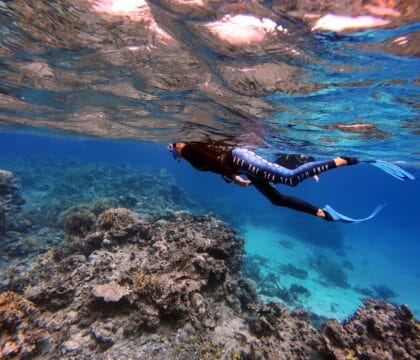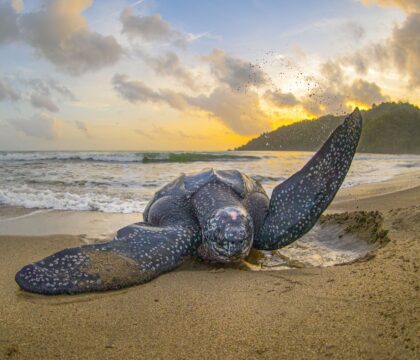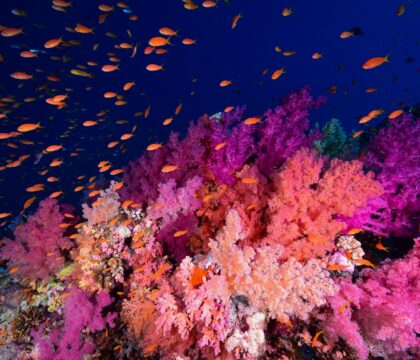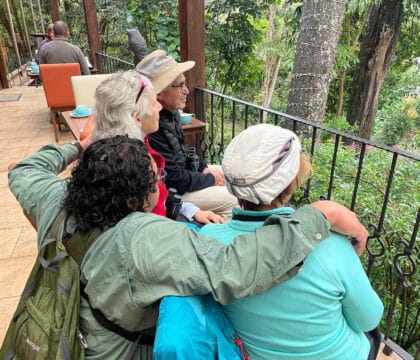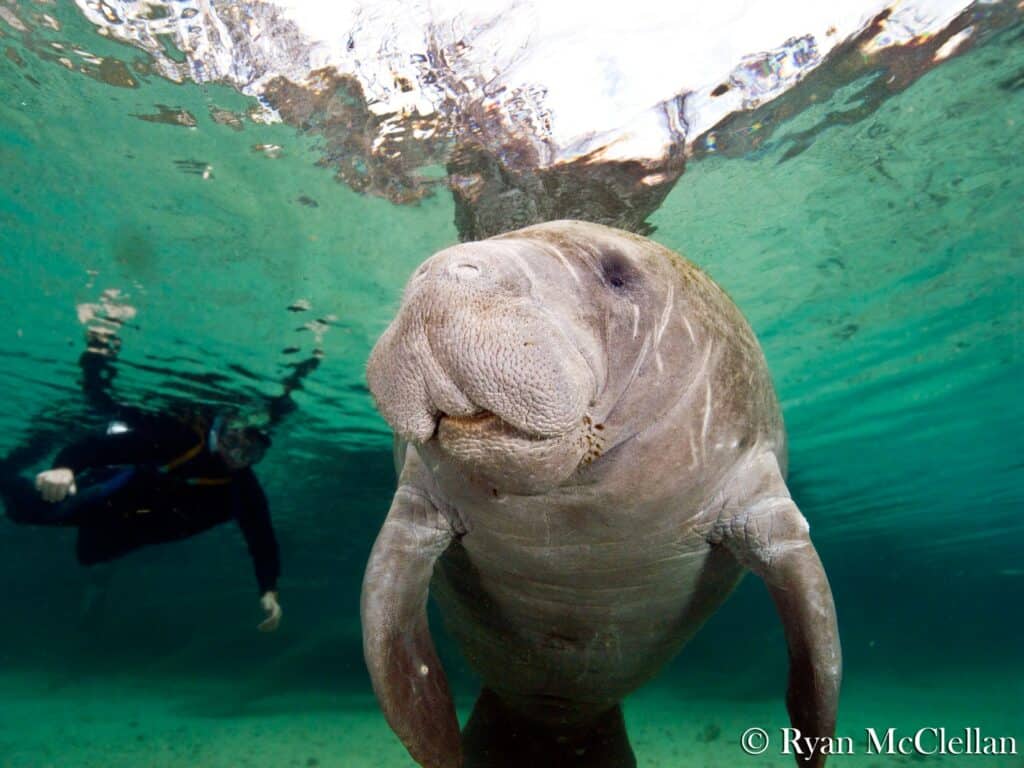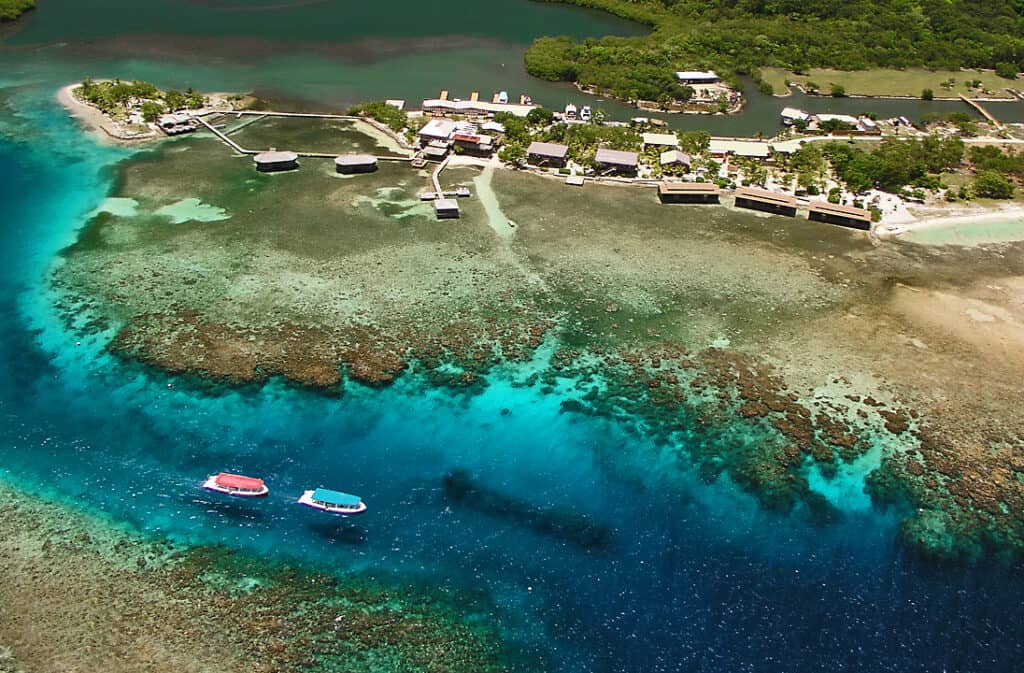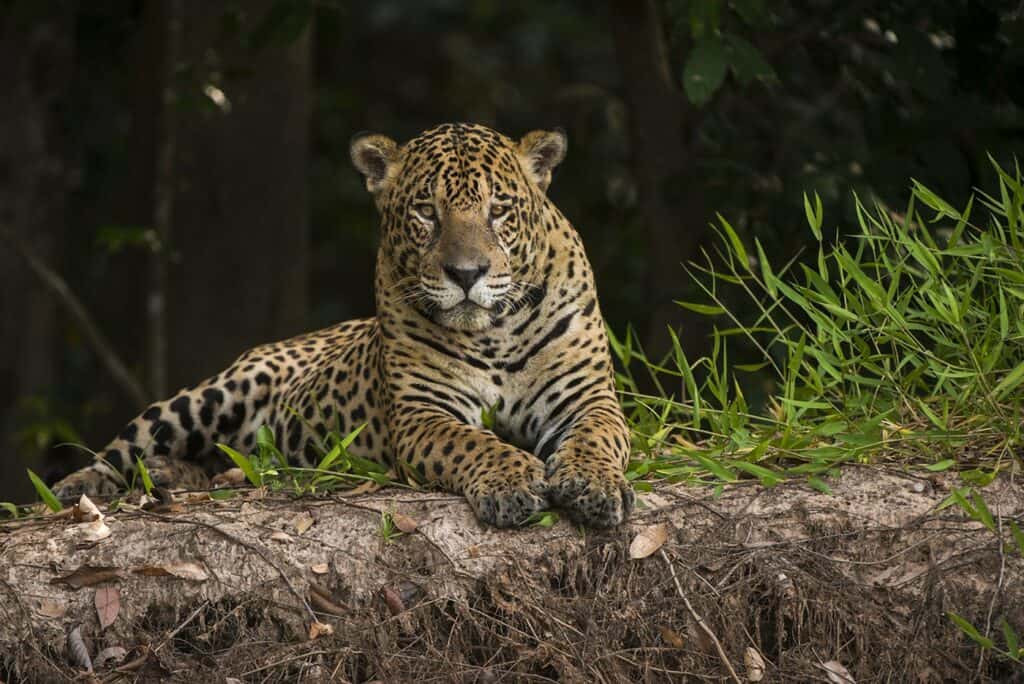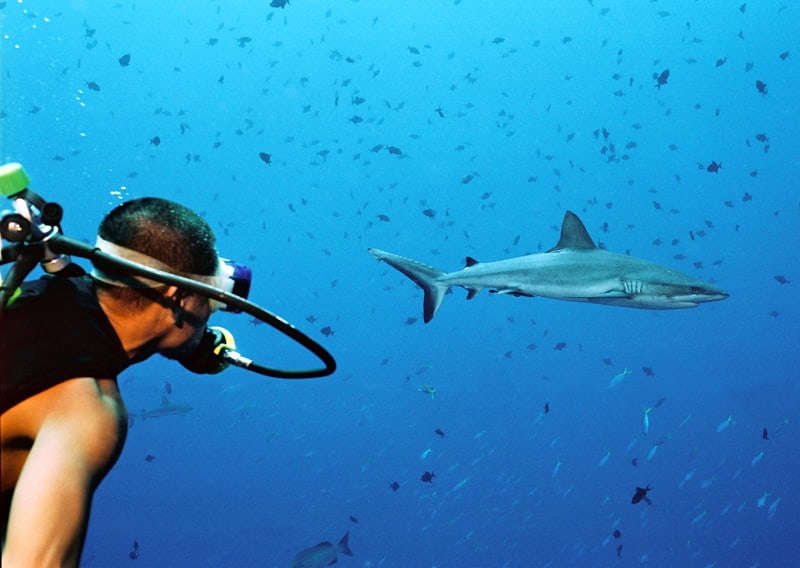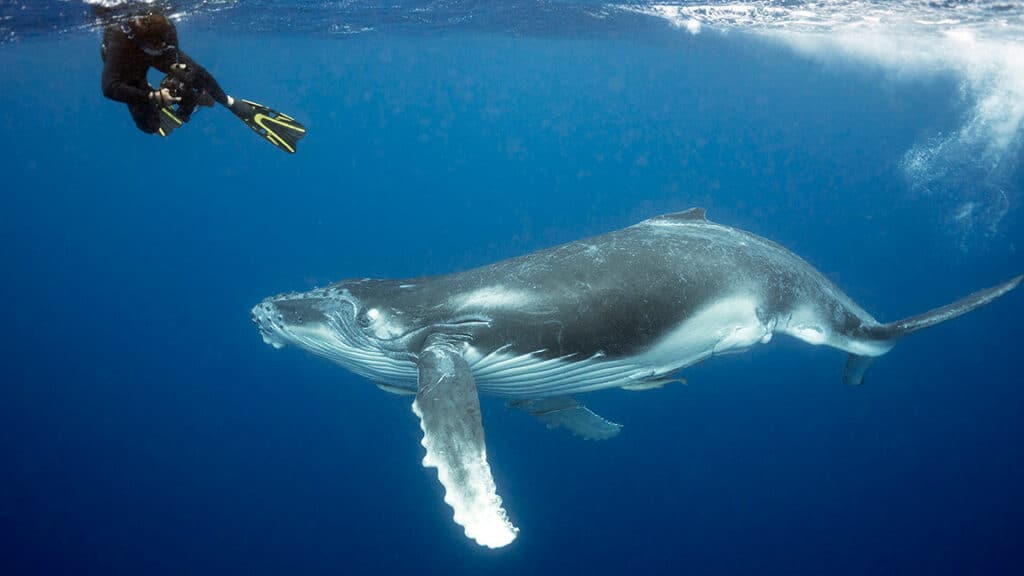August 10, 2018 • Trip Reports
A large elkhorn coral in Tres Palmas Marine Reserve. © Islamar Expeditions
In January, a group of local marine scientists entered the waters at the Tres Palmas Marine Reserve in Rincón, Puerto Rico. They descended below the blue Caribbean waters and began to settle in with their equipment, surrounded by the majestic orange branches of elkhorn corals. The goal? To collect as many “fragments” (broken elkhorn coral pieces) as possible and cement them back down to the reef. Sounds pretty crazy, right? Well, it actually works!
A scientist collects a broken coral fragment off the seafloor. © Islamar Expeditions
These trained biologists soon recovered more than 200 pieces of coral that were broken off during Hurricane Maria and strategically placed them back onto the reef. At the surface, volunteer paddleboarders brought out buckets of cement that they lowered down to the dive sites.
A bucket of cement is lowered underwater to re-attach broken coral. © Islamar Expeditions
The biologists would grab a handful of cement and a coral fragment, swim off to hunt down the perfect spot to relocate, then cement the fragment to the bottom. Several of these fragments were then tagged with bright yellow plastic tags so their growth and health can be monitored for years to come.
Yellow tags mark the locations of coral plantings for monitoring. © Islamar Expeditions
Efforts like these are continuing around Puerto Rico until the summer. In fact, at least two more coral reef restoration days are required to help the Tres Palmas Marine Reserve recover, during which scientists are expecting to plant more than 100 more coral pieces. But the work doesn’t end once the fragments are cemented to the bottom. This project will continue to be a long-term monitoring effort led by both scientists and volunteers, in order to watch how these coral recover and grow in their new homes.
Oceanic Society is excited to be collaborating with this project through new coral reef volunteer opportunities in Puerto Rico led by the scientists at Isla Mar Research Expeditions, who are our hosts and outfitters in Rincón. Not only are they deeply committed to this long-term monitoring effort, they are also excited to show you how to participate!
This is a wonderful opportunity for you to head to Puerto Rico and contribute to real-life science that is helping monitor the reefs! As a coral reef volunteer on this trip, you’ll learn how to photograph and measure corals, document growth, and observe any diseases. You’ll also get a crash course on learning to identify Caribbean fish, you’ll participate in nighttime sea turtle monitoring at a local beach, and you’ll explore the beauty of this island, which continues to flourish. We look forward to welcoming you to Puerto Rico!
For trip dates and details, see our Puerto Rico: Coral Reef Volunteer Program.

